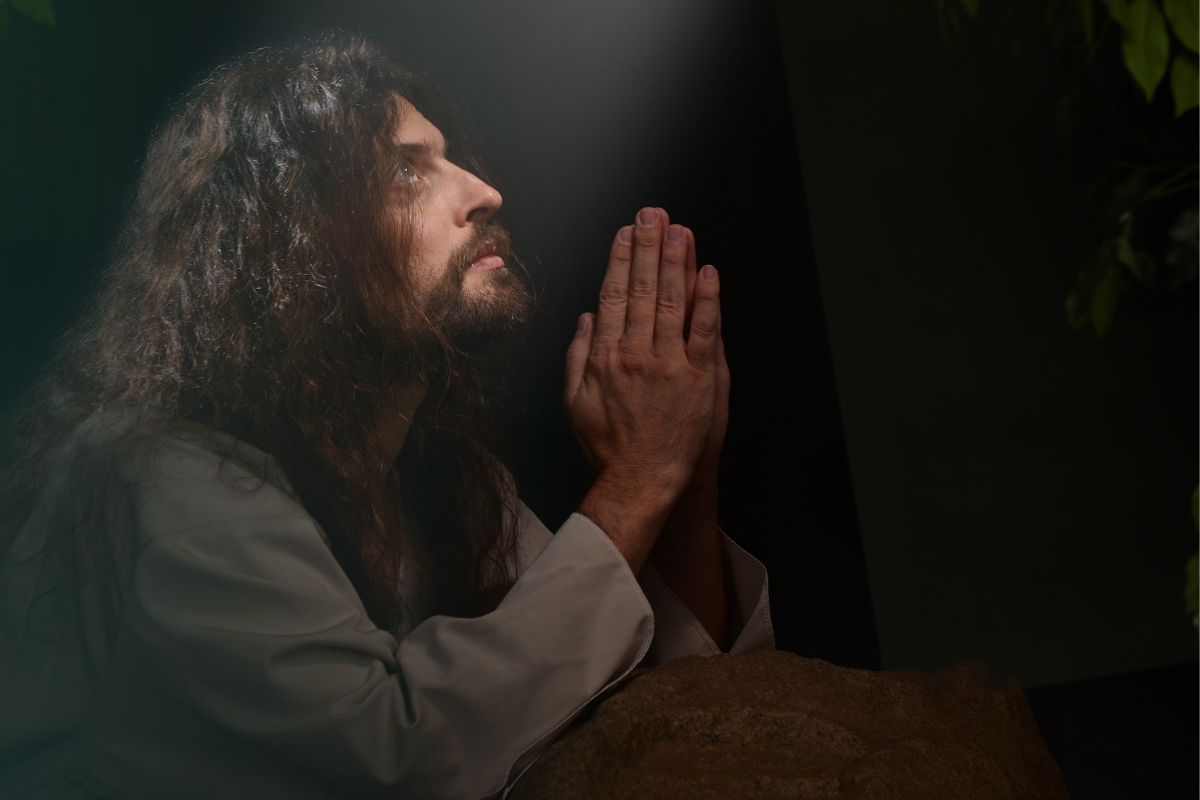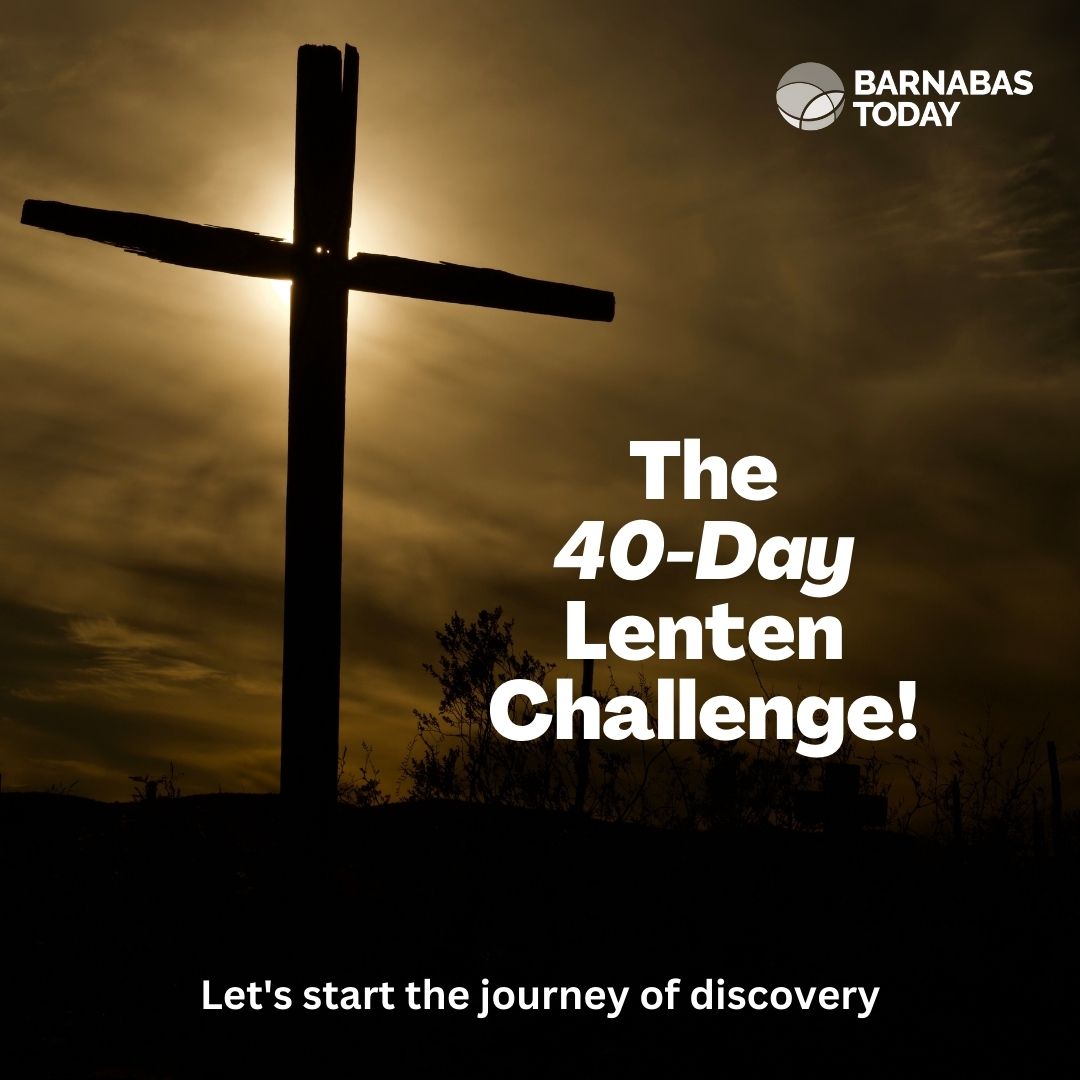
The story of Jesus Christ’s prayer in the Garden of Gethsemane is told in Matthew 26: 36-56. Interestingly, Matthew draws a stark contrast between Jesus and his disciples throughout this passage. It is striking how Jesus’ confidence in God’s plans and purposes contrasts with the disciples’ misplaced adventurism.
This reflection aims to examine this contrast between surrender Vs resistance in detail and learn lessons from it.
The Context
As the passage begins, Jesus goes to the Garden of Gethsemane to pray (v. 36). Upon arrival, Jesus asks his disciples to pray for (with?) him (36b). Luke reports that it was a regular routine for Jesus and his disciples (Lk 22:29).
Jesus prays to God for strength and resilience with his face towards the ground (v. 39). As he prayed, he asked his disciples to join him. However, the disciples slept and rested while Jesus prayed (v. 45).
Then Jesus asked his disciples, “Couldn’t you keep watch with me for one hour?” (v41). Meanwhile, Judas arrives with a crowd to arrest Jesus V47). The disciples run away, leaving Jesus (v56).
The disciples’ sleep is often viewed as a sign of a lack of commitment in popular preaching. Even worse, their “desperate flight” from the Garden of Gethsemane is deemed cowardly. But why did the disciples’ sleep and rest’ and eventually leave the garden of Gethsemane?
Misplaced Courage
It is true that the disciples fled. However, they “ran away” not because they were afraid but because they did not appreciate, if not understand, God’s plan. This is why Jesus told them to pray so they wouldn’t be tested. Instead, they were “sleeping and resting.”
Luke adds an interesting detail to his account of the Last Supper. His report of the Last Supper mentions two swords that Jesus’ disciples had during conversations over the Passover meal (Lk 22:38). Despite Jesus’ teaching about his death, the disciples did not accept it. Peter said, “I am ready to go with you and even die with you” (v. 34). The disciples were probably planning armed resistance.
One disciple even cut off the right ear of the high priest’s servant with a sword (V50). To me, it appears that they were willing to fight. The disciples fled because they disagreed with Jesus’ way of the Cross.
Jesus had told his disciples that he would be arrested, handed over to his enemies and nailed to the Cross (v2). Their enemies were known to them. Therefore, the disciples were “sleeping and resting” to fight back if necessary.
Absolute Surrender
In striking contrast, Jesus prays for strength and resilience. Jesus prays, “My Father, if it is possible, let his cup pass from me; nevertheless, not as I will but as you will” (v. 39). Jesus surrendered completely to God’s plans and purposes.
Jesus was sad and troubled (v. 37) but found the courage to face the situation through prayer. Jesus did not resist or try to escape when the crowd came to arrest him. Instead, he willingly surrendered himself.
When his disciple drew his sword and struck the high priest’s servant, he told his disciples not to resist. He told them, “Do you think I cannot call on my Father, and he will at once put more than twelve legions of angels at my disposal?”
Jesus even rebuked his disciples, “Put your sword back in its place…for all who draw the sword will die by the sword.” After this, the disciples fled the garden of Gethsemane. However, Jesus remained steadfast and resolute, even in the face of severe danger and persecution. Herein lies the power of prayer.
Lessons from Gethsemane
| Jesus | Disciples |
| Jesus prays three times to draw strength | Disciples are found “sleeping and resting.” |
| Jesus willingly surrenders himself to the crowd that came to arrest him | The disciples react with violence. |
| Jesus is taken away to be tried. | The disciples fled and abandoned Jesus. |
The contrast between Jesus’ faith and the disciples’ fear gives us several significant lessons.
- First, Jesus could endure the agony of the Cross because of his absolute surrender to God’s plans and purposes through prayer. As followers of Jesus, we must surrender daily to God’s will through personal and corporate prayer.
- Second, Jesus had absolute trust in God’s plan and purposes. As followers of Christ, we can draw strength from this example and trust that God is with us in our own struggles.
- Third, the passage reminds us of the importance of community. Jesus asked his disciples to keep watch with him, but they were “unwilling” to do so. They could not subscribe to God’s way of redemptive purpose. We need to pray for and support our brothers and sisters in Christ so that they remain strong and resilient.
Final Words
Matthew highlights a stark contrast: Jesus’ confidence in God’s plans and purposes and the disciples’ misplaced adventurism.
Following Jesus requires surrendering our will to God’s plans and purposes, even in the face of great danger and persecution. Do we respond with faith or with fear? Do we trust God’s plan, or do we try to take matters into our own hands?
As we reflect on the Garden of Gethsemane, may we find the strength to follow Jesus’ example of faith and trust in God’s plan for our lives.
This is part 4 of the series “Jesus: Victor or Victim.”


Join the 40-day challenge. Read our Lenten articles every day for the next 40 days!
https://www.barnabastoday.com/category/faith/40-day-challenge/







